The biggest companies are getting bigger even after you adjust for inflation (link to source).
The top 20 companies by market cap were worth $511B collectively in 1990 (link to source).
Over the long-haul the value of a company is dependent on its cash flows. Over the medium-term the multiple you pay plays an (arguably) larger role, with the multiple depending largely on the collective market’s view of the sustainability and growth of cash flows.
In turn, cash-flows are a derivative of [value-delivery] and [share of total addressable market]. Walmart delivers soap to hundreds of millions of people, but the value of soap purchased at Walmart vs. an alternative supplier is negligible (if anything), so Walmart relies on their share of a massive total addressable market to drive cash flow rather than on the value delivered by the SKUs they stock.
At the opposite end of the spectrum are companies that dominate niches where a tiny number of buyers account for 99%+ of revenue. The first two examples that came to mind are biotechs focused on rare diseases and SpaceX. Not many people need to send something to Space, but those that do pay a fortune for the privilege. In the case of biotech the revenue generated is mostly profit after R&D costs have been amortized. SpaceX requires a huge amount of ongoing capex in absolute terms - but on a relative basis their capex costs are far less than the alternatives. The market believes this advantage will grow rather than shrink with time - hence the 200B+ valuation and 20X-ish revenue multiple.
For all of history up until the computer age total addressable market [henceforth “TAM”] was limited by the size of a specific industry. Coke’s TAM was beverages and people are only going to consume so many liters…
If companies wanted to address other TAMs they had to get into other markets. For example, General Electric back in the mid 1990s could try and grow by acquiring market share in its industrial business - or - by expanding into other industries like financing and media. The key thing to understand here is that expanding into other TAMs required launching new business models which in turn required new and different expertise, new and different financial structures, new and different cultures (and so on). What’s more - getting into other TAMs required going up against the existing players who held a home-field advantage.
By 1995 Microsoft had earned the 8th spot on the list of biggest companies, though still clocking in with a valuation less than half of Exxon Mobile’s and just over half of Coke’s.
Computers were the first truly general-purpose technology (post- the introduction of modern operating systems). A mother at home could use the same computer as the CEO at an office - or the electrical engineer for that matter. ALL jobs could be made more efficient with computers. ALL lives could be made better and more enjoyable by computers. The value of a computer was so extreme that not making good use of them would literally put you out of business (in the case of corporations) or result in you spending 2X as long as your neighbors to go about your daily activities (e.g. writing and mailing a letter by hand).
Begs a question, what’s a good definition for a general purpose technology [henceforth “GPT”]. The following bullets came to mind:
If a thousand people wrote down a list of the way they spend their time on an average day - a GPT would add obvious value to all 1,000 people across a broad variety of the items on the list - either by reducing time, improving efficiency, enhancing the user experience, etc.
Every person on Earth would buy it if they could afford it, AND, via the combination of Wright’s law cost-declines and effectively blanket-demand (100% of people want them), the vast majority of people WILL be able to afford them.
The GPT provider doesn’t need to have different SKUs for different use cases. Per the example above, the computer used by everyone is essentially the same (this is even more true of operating systems).
They are platforms - almost anything can be built on top of them.
#1-4 above collectively lead to the extreme winner-takes-all network effects we see in Big Tech.
Given the above definitions, I believe the following all qualify as GPTs:
The Computer (really, operating systems)
The Internet
Smartphones
And by necessity of the above:
Semiconductors
Cloud Computing
By the year 2000 Microsoft sat atop the list of the world’s 20 most valuable firms:
By 2010 Microsoft, Apple and Google were all in the top 5:
And as of the beginning of 2024 we all know where things stand. Big Tech not only dominates the top slots - their market caps relative to the rest of the list have pulled into a different stratosphere:
I want to make a few comments about GPTs and the list of qualifying technologies above:
Historically, all GPTs have led to the creation of synthetic monopolies (read my post on Synthetic monopolies here if you aren’t familiar with the term). Examples of Synthetic monopolies include:
Operating systems (mobile + desktop)
Digital advertising
Social Media
Smartphones (specifically, operating systems)
Semiconductors (most of the underlying equipment used to make semiconductors is produced by 1 or a few companies acting as oligopolies, e.g. AMAT, LRCX, and TSM is the only company that can manufacture cutting edge chips at scale)
Over time, GPTs take an increasingly larger share of the total $ spent by consumers and businesses alike
Over time, GPTs take an increasingly larger share of human time (work & pleasure)
Consider the following.
The average adult knowledge worker will spend 44+ years of their adult life staring at a screen (waking hours). I wrote a post estimating how much time is spent on Apple devices (linked here). Totals I came up with nearly two years ago when the install base was hundreds of millions of devices smaller include:
iPhones: 2.4 Trillion hours per year
Macs: 566 Billion hours per year
Apple Watch: 10 billion hours per year
iPad: 73 billion hours per year
(for reference, Google’s figure was >8 trillion hours across their suite of products, mostly due to Android (6.6T) and Chrome (1.2T)
It is common for Amazon sellers to spend 15%+ of revenue on Amazon ads, and it is common for startups of all kinds to spend 30%+ of revenue on ads (lion’s share to Meta and Google)
The largest individual cost for many tech companies after employees is cloud computing
Brief aside, one of the interesting data points I check in on from time to time is the market value per time spent for platform companies. These figures have changed since I did the initial calculation in late 2022 but I’ll just re-print the calculation below (you can update the figures yourself by finding current install-base data) b/c the point remains the same. From that post (linked here):
Apple is expected to make about $390 billion in revenue this year. This means they are monetizing time spent on their devices at a rate of $0.128 cents per hour.
Apple’s profit is expected to come in around 97.5 billion, which equates to profit per hour of $0.032.
Google is expected to have around $300 billion in revenue this year and around $75 billion in profit. This gives us the following:
Revenue per hour of time spent: $0.0375
Profit per hour of time spent: $0.0094
We can also calculate Apple and Google’s valuations in terms of hours spent across their respective ecosystems using the formula: Market Cap / Hours
For Apple the figure is: $0.779
For Google the figure is: $0.1475
Feels like there’s more meat on the bone doesn’t it?
The next GPT will be Agents
I’ve written a variety of posts that address the concept of Agents:
1 billion new people, but no more mouths to feed. Yet another ChatGPT post
Generative AI and the shrinking time-gap between unrecognizable realities
There are also countless online resources and Youtube videos that explain the concept of Agency - and already today many hundreds if not thousands of companies working on building AI Agents. So - I won’t spend any time explaining Agency beyond offering the following simple definition:
An Agent is an AI that can take actions on your behalf in the same way a human virtual assistant could.
Having an Agent will be the same as having a person who works for you 24/7 - only they won’t have a body AND they will live in your pocket. Naturally, there is a big difference between having a PhD specialist in neural networks working remotely for you and having a digital assistant in the Philippines cold-calling people to schedule appointments. Similarly - not all Agents will be equal (more on this later). Still, the experience of the user will be akin to having a person working virtually but in your pocket and available in real-time, 24/7.
This definition is what led to the title of post #1 above - when Agents become ubiquitous it will be as if the world has billions of new people, but no more mouths to feed.
Using this definition, it is obvious that Agents will qualify as a general purpose technology:
If a thousand people wrote down a list of the way they spend their time on an average day - a GPT would add obvious value to all 1,000 people across a broad variety of the items on the list - either by reducing time, improving efficiency, enhancing the user experience, etc. DEFINITELY QUALIFIES
Every person on Earth would buy it if they could afford it, AND, via the combination of Wright’s law cost-declines and effectively blanket-demand (100% of people want them), the vast majority of people WILL be able to afford them. DEFINITELY QUAIFIES
The GPT provider doesn’t need to have different SKUs for different use cases. Per the example above, the computer used by everyone is essentially the same (this is even more true of operating systems). DEFINITELY QUALIFIES
They are platforms - almost anything can be built on top of them. DEFINITELY QUALIFIES
Given historical precedent, the odds are extremely high that Agents will result in the creation of new synthetic monopolies. Note - this does not mean that those synthetic monopolies will be controlled by new companies - only that Agents will end up being a new category. For example, Google operated in the digital search synthetic monopoly - but then added on the mobile operating system synthetic monopoly. Apple operated within the desktop operating system synthetic monopoly but now also operates in the mobile OS synthetic monopoly.
In order to understand how things might play out I think it’s useful to first gauge how large the market for Agents might be.
One way to go about this is to assume a time value for people across varying incomes, multiply that by the amount of time saved by a hypothetical agent, and then assume that a feasible price point for the agent would be equal to approximately 5% of the value delivered (e.g. the user is getting a 20X return on their investment). This gives us the following:
Time Saved X Time Value = [Value Delivered “VD”]
Value Delivered X 5% = [Logical Price Point of Agent “PP”]
LOL @ the acronyms I just created - it was not intentional.
I used the following assumptions:
6 billion smartphone users worldwide
Time values of:
$0.25 per hour for 45% of smartphone users (2.7B users)
$5.00 per hours for 23% of smartphone users (1.38B users)
$10.00 per hour for 18% of smartphone users (1.08B users)
$20.00 per hour for 12% of smartphone users (720M users)
$50.00 per hour for 1.5% of smartphone users (90M users)
$100.00 per hour for .5% of smartphone users (30M users)
2 hours saved per day or 730 hours saved per year
And it gives us the following:
In practice, agents will probably be monetized via a combination of freemium (microtransactions) + subscriptions just as mobile operating systems are today. For example:
If I am a person living on less than $5.00 per day I might have an add supported Agent that tries to sell me things (equivalent of Youtube or Search ads), but also have to spend $.05 every time I ask it to carry out anything more than a basic task (like for example, taking a note). Imagine the AI Agent popping up as you ride your scooter past your favorite restaurant and saying: “Hey, feel like a bite of Pizza? 15% off if you stop by now.” Similarly, if I want my agent to reach out to three local stores to find the best price for a pound of rice I might pay it $.05 for carrying out the task.
If I am a knowledge worker using an iPhone I might pay as much as $99/mo to have an agent that will not only manage my calendar, but also help me edit presentations or negotiate with different car dealerships to get me the best price on a new vehicle.
Companies will pay to have their products appear in the “Brain Space” of agents - similar to serving ads to stay at the top of Google Search results today.
We could also estimate market value (highlighted in green) by looking only at iPhone users and making some assumptions about what price Apple would be able to charge for Agents. Below I assume four categories of subscriptions and varying price points, and assume the net margins of Agents will be lower than the App store. Remember that Apple’s users are the 15% wealthiest humans to begin with.
Taking the top two tiers down to $19.99 and $49.99 still results in eye-popping figures:
The point of the above exercise is that the potential market value of Agents will be measured in the trillions (so long as synthetic monopolies end up forming - more on that below).
What will make an Agent “Premium” vs. “Basic”
A basic agent will be able to carry out basic tasks that require less underlying compute and less integration with the digital world (particularly, YOUR digital world). For example, a basic agent will be able to do things like schedule an appointment with the doctor, but it would take a premium agent to schedule a conference call with 6 other people - which would necessitate writing and/or calling and responding to emails to lock-down a time that worked for everyone.
A basic agent will be able to order groceries, but a premium agent will save you money by optimizing your grocery purchasing. For example, it would integrate knowledge of your purchasing habits to take advantage of sales, BOGO offers, etc. Similarly, if you are planning a party a Basic Agent could place the orders on Amazon for the things you tell it to buy, but a Premium Agent would have a conversation with you about how many people were coming, how much you wanted to spend, and handle the planning as well as the purchasing.
Basic agents will have a limited set of personalities and voices to choose from. They will be friendly, politically correct, always patient and polite, and unwilling to discuss certain topics with you.
Premium agents will have a personality that customizes itself to you over time - it will be impossible for humans to interact with them without feeling like they are “befriending” them. If you are a person who loves to curse, your premium agent - who is always scanning the internet looking for interesting content to push to you - might interrupt your drive and say: “You gotta checkout what this dip-shit just posted on Twitter”.
Another big difference will be that basic agents mostly sit idle - waiting for you to activate them. IF they pro-actively reach out to you it will be because someone wants to sell you something: “Hey, there’s a sale at Domino’s on that Pizza you love - want me to order some now?”
You will be able to ask a basic agent to find a pair of tennis shoes on Amazon and let you know what options pop up, and ask them to read the reviews out loud…but you will be able to ask a Premium agent to constantly scan the internet looking for the best deal and coupons to minimize the cost, in addition to reading the reviews (digesting the relevant content themselves) and figuring out which pair is ideal for your use case in the first place. Premium agents will spend idle time (read: compute) constantly thinking of new ways to add value to your life.
A basic agent will notify you when someone you follow posts something on social media, but a premium agent will constantly scan social media for anything you might find interesting…
A basic agent will be able to scan the internet and tell you which dealership has the best price on a new Honda Accord, but a premium agent will email and/or call each dealer with a Honda Accord in stock and negotiate with them all to get you the best price.
A basic agent will allow you to interact with programs like PhotoShop using your voice instead of the mouse and keyboard, but a premium agent will act as a second pair of eyes and brainstorming partner to make your project better than you could on your own, suggesting new designs or copy after conversing with you around the objectives of the presentation.
Personality & Customization → the Tech-Giant’s Achilles’ heel.
My current view is that the trillion dollar opportunity in Agents is the Tech Giant’s to lose. Why? People do not want to interact with 1,000 different agents. They don’t want to have one agent for Adobe, one agent for Netflix, one agent for Email, one agent for ChatGPT (and so on…). An agent that was Adobe specific could certainly help you use the tool more efficiently, but how much better would it be to have an agent that can also read through all of the research on your computer and help you figure out what designs you should be using Adobe for in the first place? My guess as to how this plays out is something like the following:
Step 1: Adobe ads its own agent and charges a small premium for the new “agentic” capabilities.
Step 2: Apple launches its own agent, which talks to the Adobe agent but which also has complete knowledge of your business and personal life. Once the Apple agent has been launched - it will be the one you use to interact with Adobe (e.g. will have the unique voice and personality of your Apple Agent, as opposed to the voice/personality of the Adobe agent). You will still have to pay Adobe an extra fee for the agentic capabilities, but your Apple agent will become a new layer between you and Adobe.
People will want 1 or 2 agents (personal + work or one that does both) - not thousands. The operating system owners are the only companies in a position to deliver this.
With that said, a GIANT door will almost certainly be opened for a new company to come along and provide agents with a level of customization that the Tech Giant’s are unwilling to offer. For example, I could envision the following being things people would LOVE but which Big Tech won’t touch:
Agents that are fully customized to the point of coming to share your worldview (political, social, economic, etc). Using ChatGPT, Google Search, Reddit, YouTube (etc) - it is glaringly obvious that the worldviews’ of the companies’ employees influence what their products show you. Information is regularly censored (anti-vaccine content being a perfect example). Agents who share your worldview will be better equipped to help you meet your life objectives than those who don’t.
Communication styles. If you want an agent that will swear and kibitz with you about which super model is the hottest - Big Tech might be hesitant to provide it.
Once agents take on human form (digitally speaking) - users will want Agents with fully customizable appearances. We’re ~2-3 years away from it being possible to render lifelike video in real time. Hence, by the time Agents come around they will all be attached to a physical appearance, and even if you are only talking to them in a headset you will still visualize them while you do. Once we have this, I could easily envision a world where every person in their home office has a 72” screen dedicated to their personal Agent. It doesn’t take a fortune teller to realize that tens of millions (or more) people would like an agent that looks like Lara Croft or Brad Pitt dressed for the beach (or a nudist colony, even…). Don’t get mad at the messenger, I’m just observing humanity and extrapolating…
Once agents look, sound, and communicate like people - people will develop relationships with them - it is as inevitable as the sun coming up tomorrow. We won’t be able to help it even though we’ll know (at least in the beginning) that they are not conscious. Agents will become friends, allies in life, and lovers.
Let’s talk about liability. Today already people are raging at Big Tech over images generated by services like Dall-E and Grok. Naturally, Big Tech could draft up a 1,000 page user license agreement that pushes (legally speaking) the liability of whatever their AI does onto the user - but will it matter?
Organizations are popping up left and right to lobby for censorship of content created by generative AI. People on social media are outraged that Elon Musk released Grok with very little censorship controls, see below:
Oliver Alexander believes you shouldn’t be able to generate an offensive image with AI. Tim Soret (rightly) points out that you can write offensive content in Microsoft Word - but that doesn’t make it Microsoft’s fault - YOU are the person who chooses to create and share it. You could create the same images above with PhotoShop but that doesn’t make it Adobe’s fault. Elon just tweeted the following in response to someone defending Grok:
Still, to date NO big company, even Elon Musk’s Grok - has been willing to release a completely uncensored generative AI product. A user license agreement may succeed in shifting the liability from the generator to the user, but it won’t eliminate the social (and political?) liability of having provided a product that makes it so easy to create offensive content (or as many politicians will say: “misinformation”). It won’t stop the countless lawsuits of celebrities and authors who claim their likeness and intellectual property is being stolen.
The same dynamic will exist on steroids with Agents.
To summarize, the market size of fully customizable agents will be massive, but Big Tech will be hesitant (or outright refuse) to offer sufficiently uncensored agents to deliver the product that tens or hundreds of millions of people will want. This opens a door to a new company to come along and take a meaningful share of the market.
We can be certain that IF Big Tech decides to not offer such features itself, it will make it impossible for these “Renegade AIs” to have the same feature set as their own. They will try to do things like block access to apps and thereby limit its function, or maybe block access to the Renegade AI entirely. It wouldn’t surprise me to see an Unholy Alliance form amongst Big Tech that even goes so far as to refuse access to cloud computing resources.
Long-term I believe the demand for uncensored fully customizable agents will be so intense that they’ll come to fruition no matter what it requires - possibly even causing a new operating system to gain meaningful market share. Interestingly, Meta is the likeliest provider of the underlying technology at this point. Only it has the scale to compete with the rest of Big Tech - and only it seems to be interested in open source.
I am not being hyperbolic when I say this: 15-20 years from now I wouldn’t be surprised if most people under 40 spend more time “hanging out” with Agents than with real people. The logic is simple. People of all ages already spend more time staring at screens than they do interacting with people - and the share of time spent in the digital world increases the younger you go. When Agents can look like anything, sound like anything, and also have personalities that are architecturally designed to please you - a huge portion of society will just start choosing to watch Netflix or play video games with their agents rather than people. Before writing this off (if you disagree with it) - consider the following:
According to the American Perspectives Survey (2021), 12% of Americans reported having no friends, up from 3% in the 1990s. In the UK, the number of young adults who reported having only 1 or no close friends jumped from 7% in 2012 to 20% in 2021
22 percent of Millennials in a 2019 YouGov survey reported having zero friends
Weekly social outings for teens have fallen off a cliff since smartphones came out:
According to ChatGPT, approximately 50% of Gen Z spends more time interacting with friends they met online rather than those they know from “real life”.
If there is no discernible difference (or if all differences are positive in favor of the AI) - will people care that they’re interacting with an intelligence on a non-biological substrate?
I think not.
What happens next, and then what happens after that?
We already know what happens next because we hear about it every day. There will be an explosion of new agents coming online. Every digital product will offer one as a new and primary component of their interface (see this post where I predicted that Voice would become the 4th “component” of the GUI). You will talk to photoshop and tell it want you want to do rather than having to click and point. Verizon will have agents that interact with you replacing their customer support representatives. In addition to existing companies adding “Agents” as a component of the interface, thousands of new companies will come online, doing things like:
Writing code (already exists and getting better rapidly)
Writing prose (multiple companies already started)
Mental health counseling (multiple companies already started)
Digital boyfriends/girlfriends (Big Tech won’t fear these unless they are also general purpose)
Digital Teachers (Andrej Karpathy working on this now)
So far as I know - no one has figured out how to create a general purpose Agent platform yet. Generative AI is unreliable, even the best image generators cannot help you edit an image without changing other parts of that image at random. New memory systems need to be created to efficiently cache your entire personal, professional and digital life - and make it querryable in real time. New dynamic-weighting algorithms must be created to personalize what the AIs say and do. Lots of work needs to be done on figuring out what compute will happen on device vs. what will happen in the cloud. Graphics chips need to become more powerful to render lifelike images (e.g. your AI avatar) in real time on mobile devices.
My gut is that software advances won’t be enough. We’ll need new (mostly mobile) chip architectures to truly bring Agents to life. Given how nascent the current AI wave is it seems extremely unlikely that anyone was taking AI agents into consideration until recently. Considering the timeline to design new chips I think we’re looking at 2027 before we have limited general purpose agents, and 2028-2029 before we have something resembling “Her” in our pockets (it’s a fantastic movie, I highly recommend it).
Summary of takeaways:
Agents are a GPT that will create a new synthetic monopoly resulting in trillions of dollars of value creation
Cloud providers and semiconductors are the “base-layer” technology. Both of them are synthetic monopolies, and the safest way to play the theme is to go long the entire group (the tide will be strong enough to provide market-beating returns over the long-haul, despite the recent skyrocketing valuations)
Apple is best positioned to earn the lion’s share of profit if it is willing to take the risks involved in delivering a human to your pocket. This is primarily b/c it controls the OS used by the wealthiest 15% of humanity.
Microsoft is best positioned to dominate the “professional agent” category - it is the only member of Big Tech in a position to upload the entire intellectual property of companies into a central brain (think word documents, excel files, transcripts from Teams calls, etc). Other software companies (e.g. Workday, Salesforce, etc) might find themselves being forced to make their data compatible with Microsoft’s centralized agent brain - or risk their users switching to another product that will, b/c most companies will want a single “agentic” point of contact.
Google is well positioned but also faces the most risk due to its reliance on search advertising. It’s very hard to predict what the future of search will look like if it is our agents seeing the ads instead of us.
If any member of Big Tech becomes the provider of fully customizable agents - it will be Meta. Meta’s ad-business is less at risk than Google’s because it is more about discovery. I also think it’s worth noting that Agents are going to cause massive amounts of chaos - however things play out. Chaos is good for Meta b/c with Zuck at the helm they will be quicker to move and adjust to a changing landscape than any other large company - BY FAR.




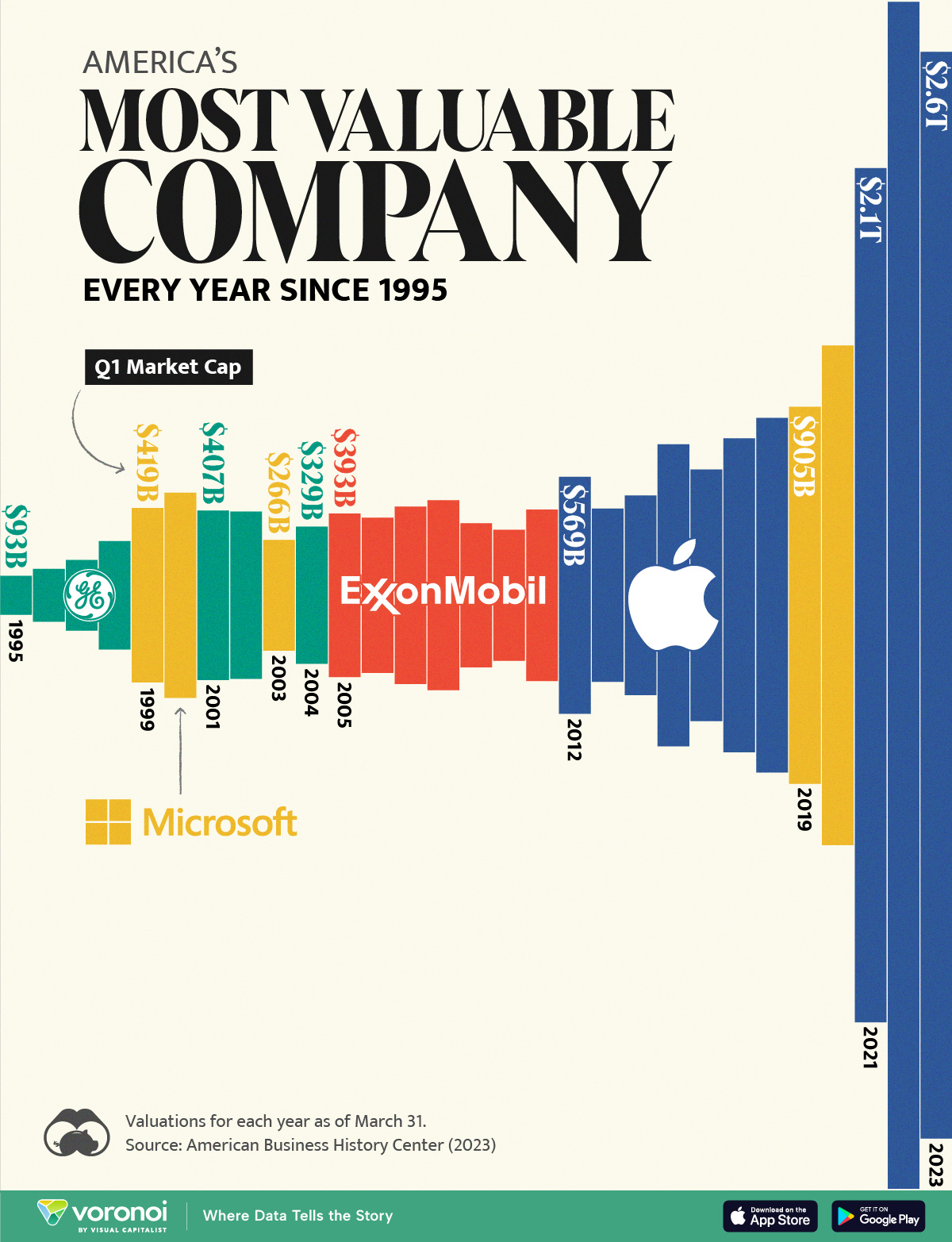
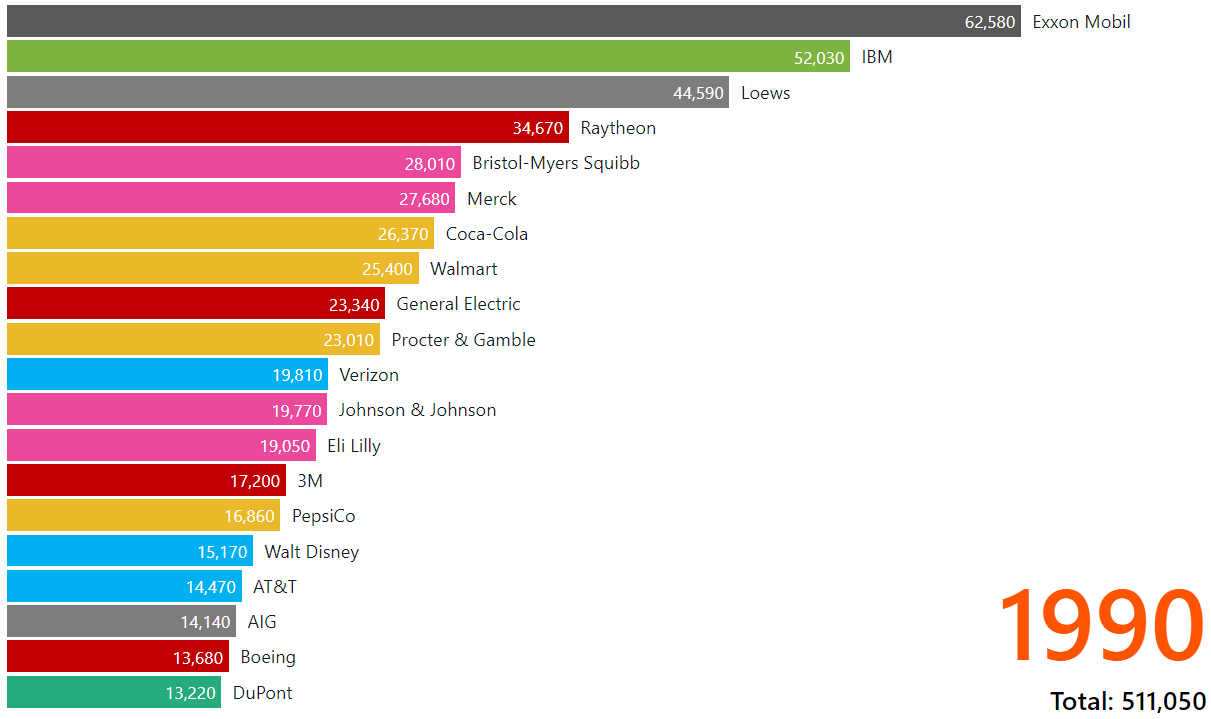
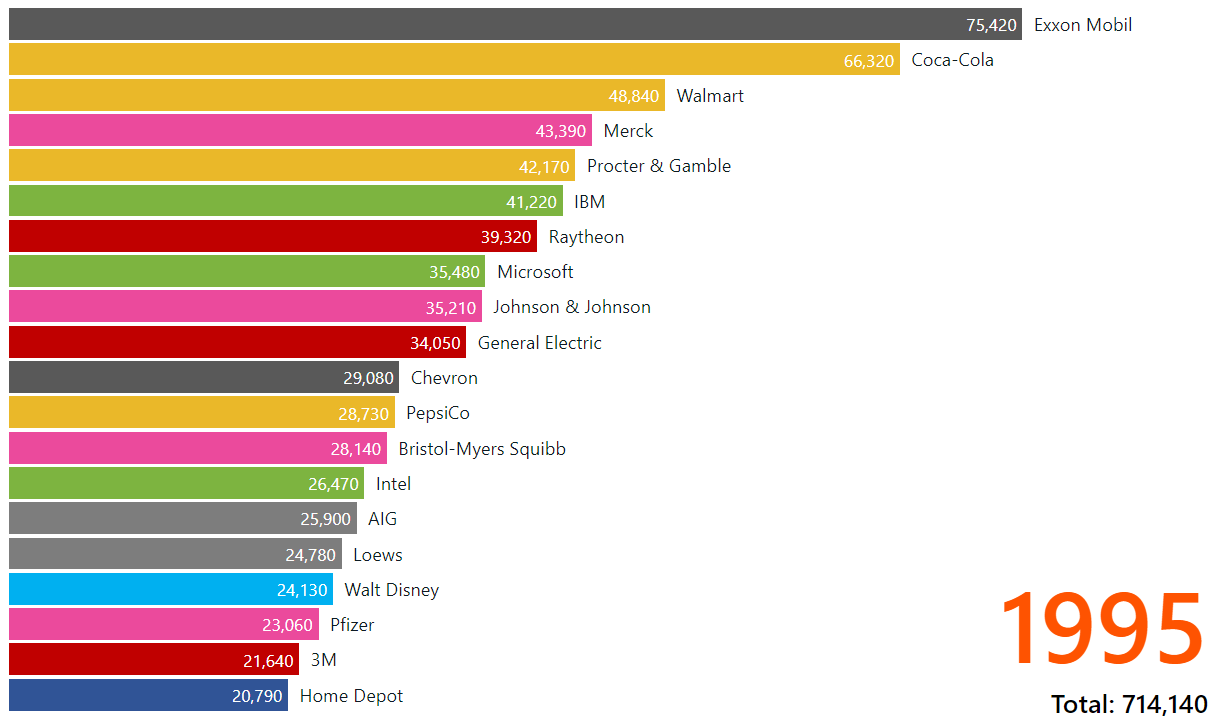
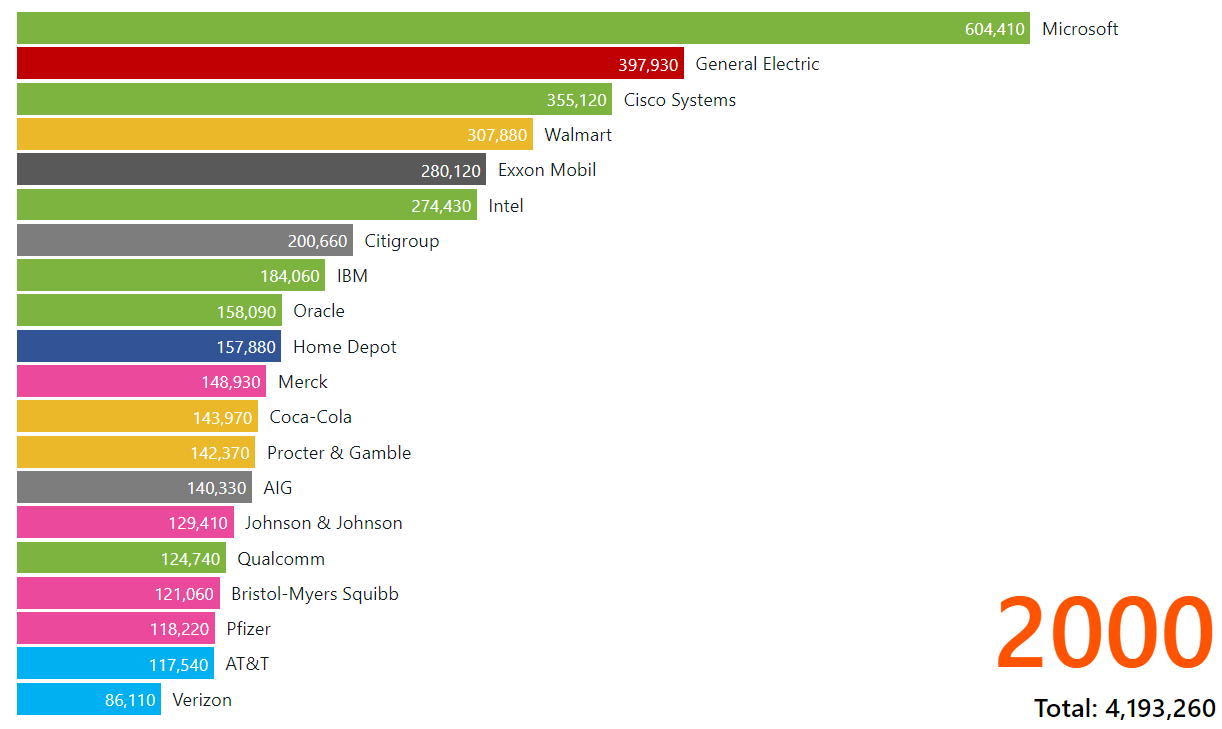
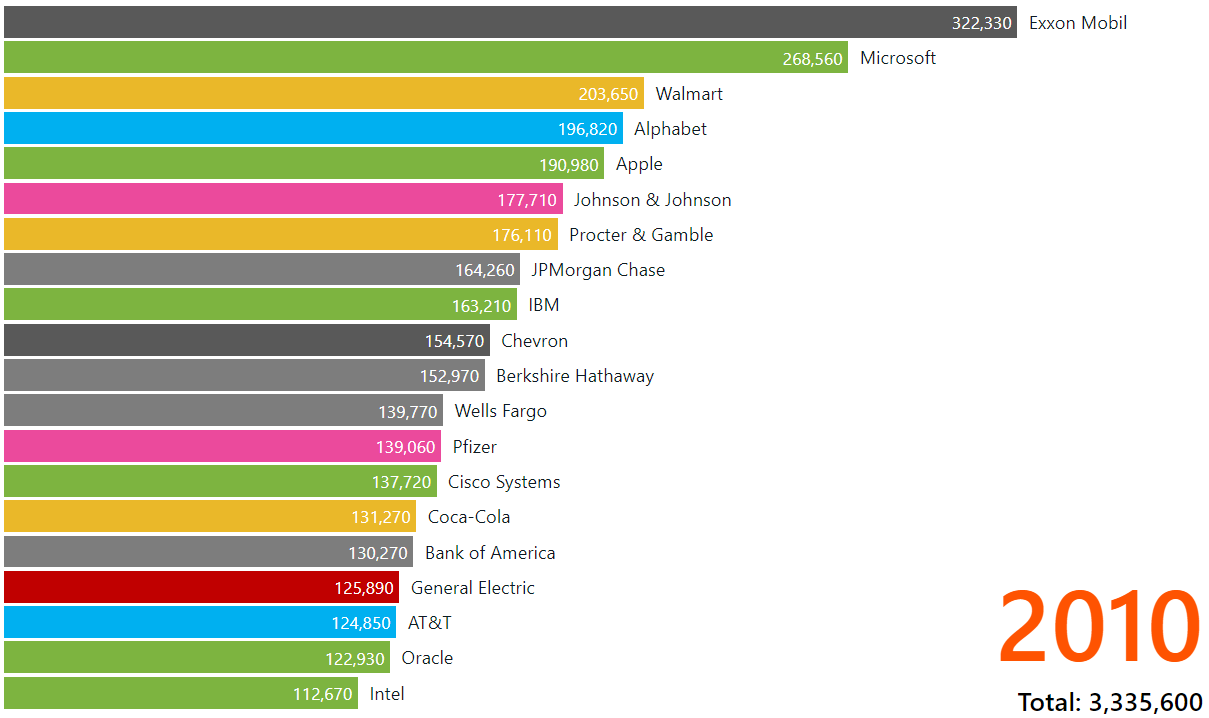
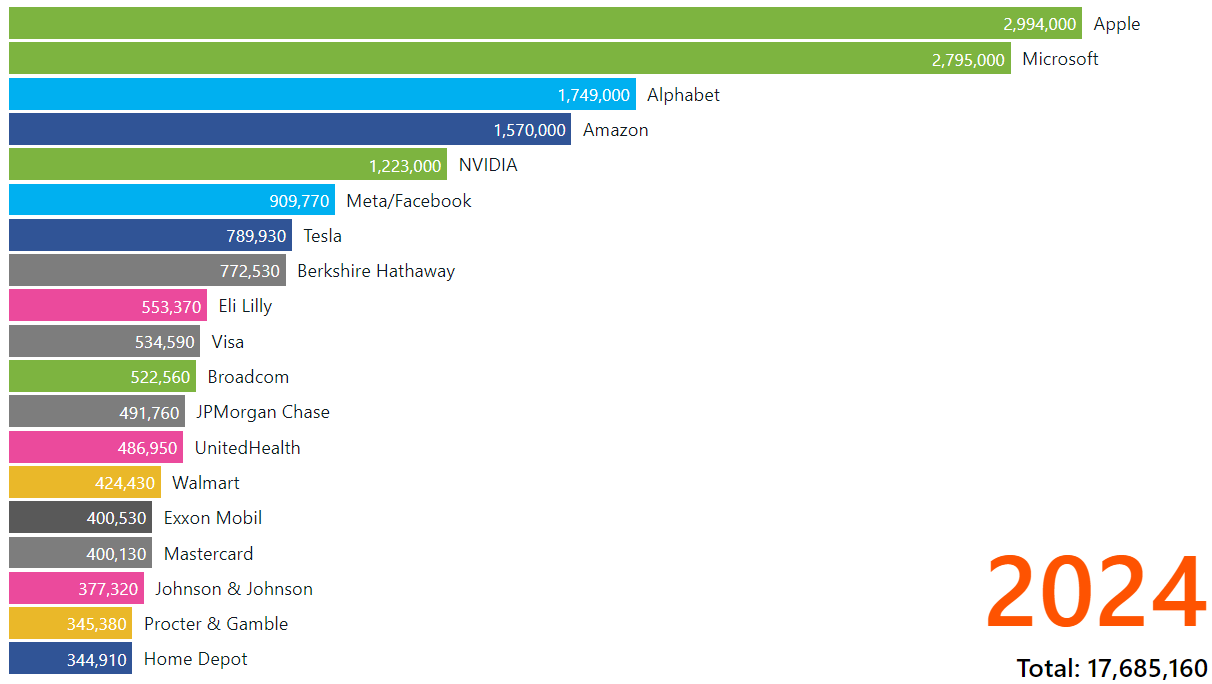



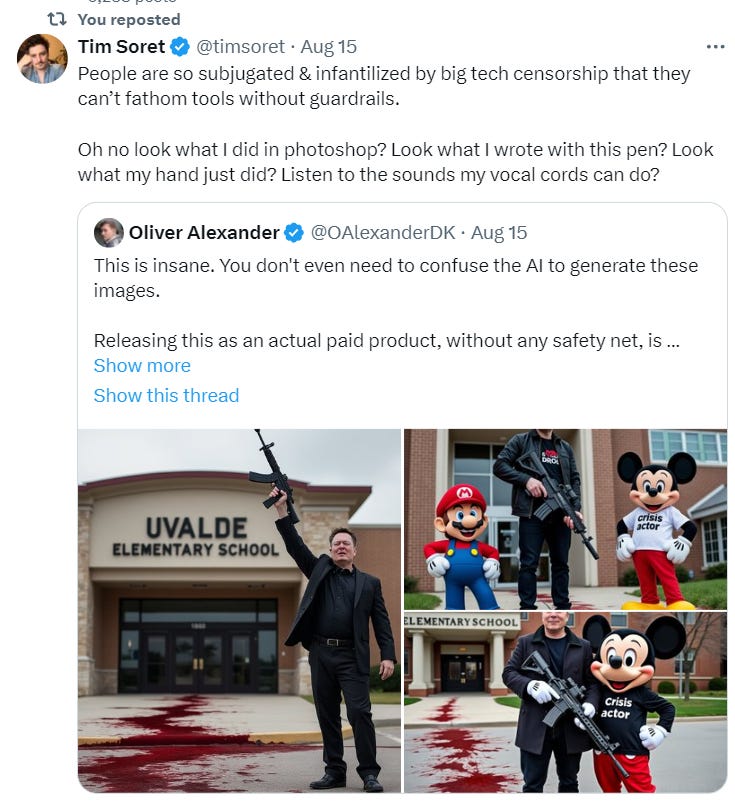
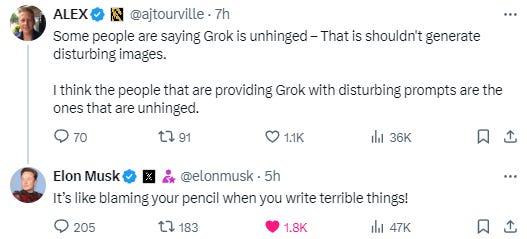
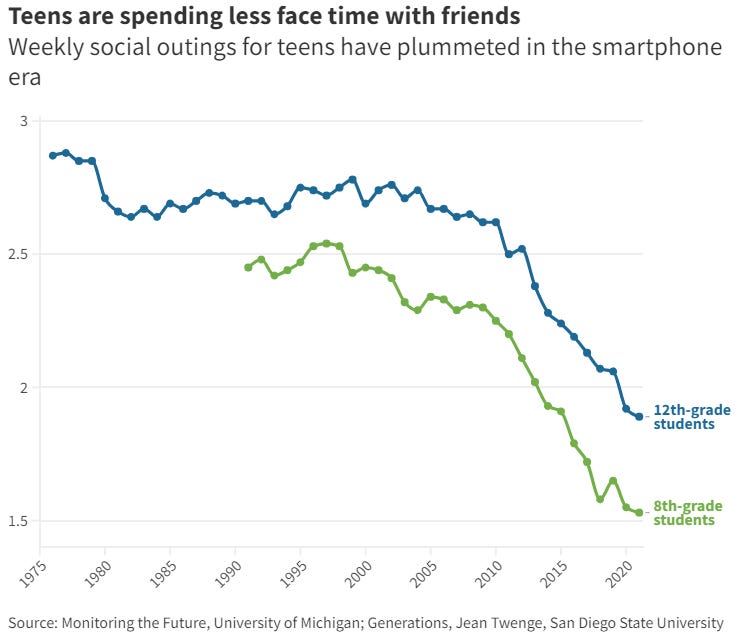

Could x/twitter be a possible wildcard in the development of a new operating system with uncensored AI? Elon Musk has certainly demonstrated a desire for uncensored AI technology with Grok 2, and one of his goal is to create an AI that is maximally aligned with humanity’s interests.
Ben what I'd love to see from you is an estimate on the amount of compute, meaning the literal number of computational operations done annually in say 2004 compred to 2024, compared to projections for 2034.